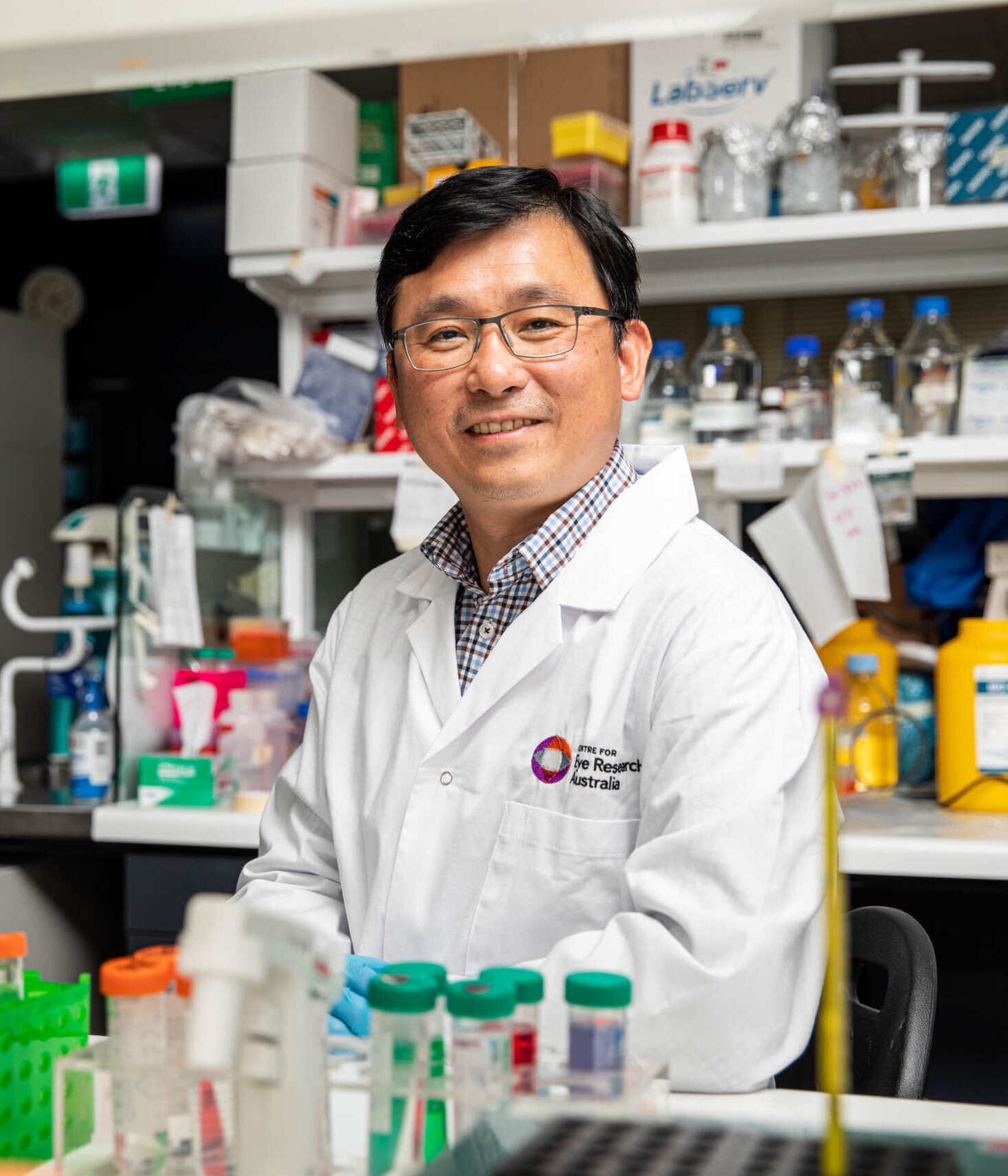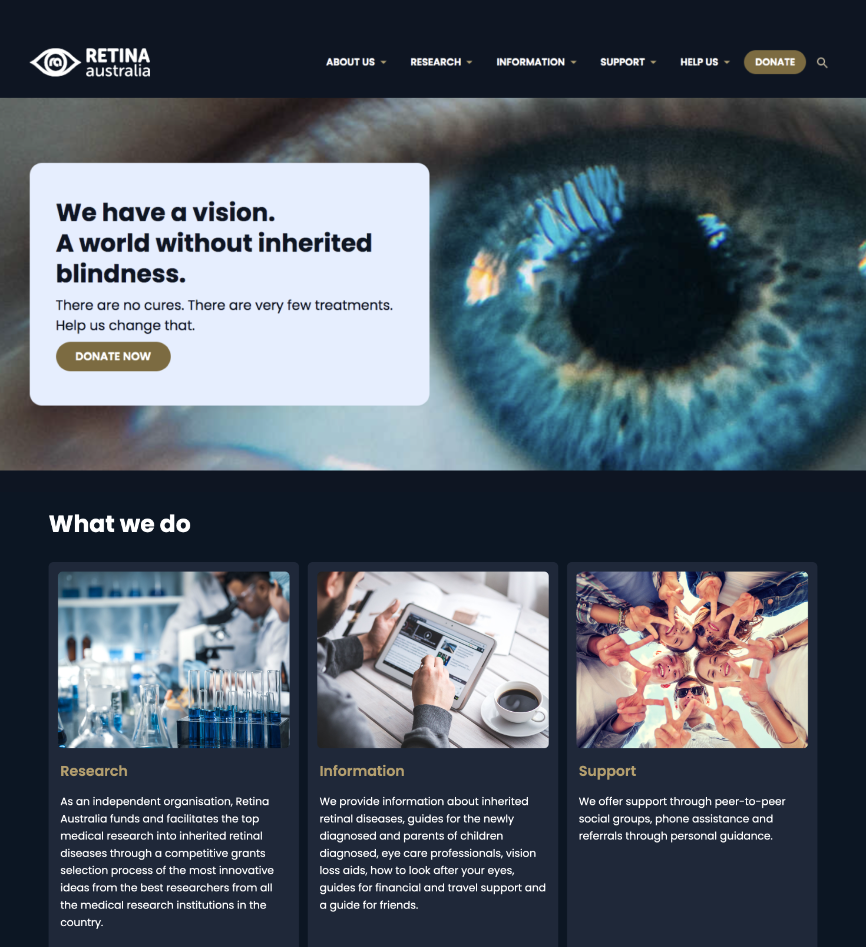27 November, 2023
Introducing Associate Professor Guei-Sheung (Rick) Liu from the University of Melbourne and Centre for Eye Research Australia, Melbourne, Australia
How has Retina Australia contributed to your research?
Our team has been awarded a grant from Retina Australia to initiate an exciting research project investigating the potential applications of cutting-edge gene editing technology in treating inherited retinal diseases, “RNA base editing strategies as potential therapeutic of inherited retinal dystrophies”.
What was aim of this project?
This project aims to evaluate the feasibility of utilising a new genetic technology known as “RNA gene editing” to correct genetic mutations in the treatment of inherited retinal diseases. We hope the outcome of this study can contribute to the development of therapeutic approaches for improved management of inherited retinal diseases.

What stage is the project currently at?
Currently, our research is in the proof-of-concept stage. Thanks to the generous support of Retina Australia, our team has successfully demonstrated the capability of using RNA editing to correct mutations in the disease-causing gene and restore normal protein expression in cultured human retinal cells. We are now extending our investigation to include clinically relevant animal models to evaluate the feasibility of using this RNA editing technique to correct mutations associated with inherited retinal diseases. By doing so, our goal is to gather evidence on the effectiveness of preserving retinal function and preventing mutation-induced retinal degeneration in the next stage.
What significance does this project have in the longer term?
This research project carries significant implications for managing various inherited retinal diseases. It represents the initial phase of our endeavour to validate an effective treatment for preserving eyesight in patients with these conditions. Leveraging the promising data generated by our project, we are currently working on conducting preclinical studies to further refine and translate this technology into viable treatments for individuals affected by inherited retinal diseases.
Why are organisations like Retina Australia important for the work you do?
While many inherited retinal diseases remain untreatable, the field has not received significant attention from major Australian funding agencies. Retina Australia plays a crucial role in raising awareness and supporting research such as our project to further understand inherited retinal diseases and develop effective treatments for affected individuals.
Why did you choose to undertake research in the Inherited Retinal Disease space?
The lack of effective medication for inherited retinal diseases has a profound impact on the daily quality of life of patients. Therefore, conducting further research in this field is both urgent and essential. In light of this, our team is dedicated to exploring better ways to manage these diseases and improve outcomes, with the ultimate goal of alleviating patients from a life of darkness.
What did receiving a grant from Retina Australia mean for you personally and has it had any “spinoffs” for others in the research field
Receiving a grant from Retina Australia signifies that our research has gained recognition within the field and the inherited retinal diseases community. Our work will contribute to the development of a viable therapeutic approach for treating inherited retinal diseases. The innovative and adaptable strategy proposed in our project has the potential to address other types of genetic disorders on a broader scale.
https://retinaaustralia.com.au/researcher-associate-professor-rick-lieu/
Other News

$1.5m NHMRC Partnership grant awarded to genetic blindness study
A $1.5m National Health and Medical Research Council (NHMRC) Partnership Grant has been awarded...

2024 Research Grants Announced
Retina Australia is delighted to announce two new Research Grant recipients for 2024. The new projects will focus on Stargardt disease and Virtual Reality...

Retina Australia’s website upgraded, rebranded and accessibility compliant
Retina's Australia's new website is now live, upgraded for...
